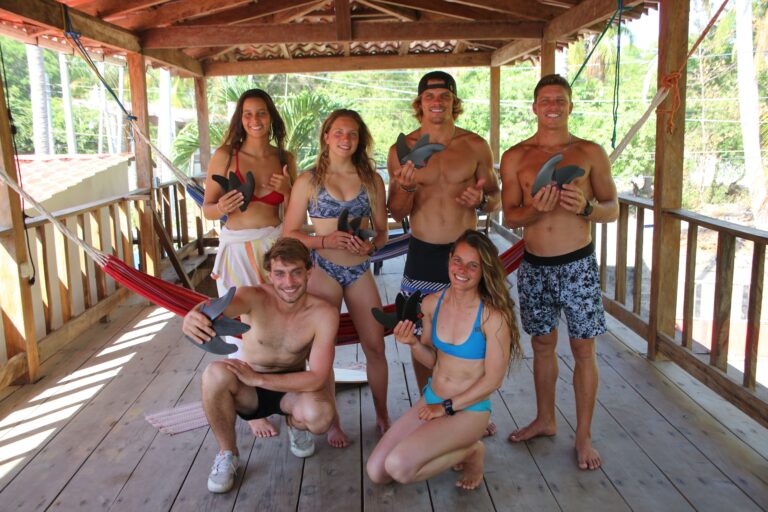However, a production process developed shortly beforehand together with OST Ostschweizer Fachhochschule and the combination of short supply chains with Swiss partners with automated production in Switzerland proved to be success factors in the crisis. Slumps in orders were fully absorbed by the new product – a high-tech surfing tiller. The Swiss surf squad also tested the Finn for the 2021 Olympic qualification.
This time it was not to be, but we wish the team all the best and keep our fingers crossed for the next qualification.

How it all began
March 2020, everything was perfectly prepared: The factory-fresh high-tech surfing equipment had been delivered to the Australian surfing outfitter FCS, the surfing season was just around the corner, and the planned Olympics in Japan had introduced surfing as a discipline for the first time. A perfect promotional event for the market launch of the latest product from svismold® – a brand for particularly high-quality products from Kunststoffwerk AG in Buchs, Sankt Gallen.
But then came the pandemic. Trade shows were canceled, customers suspended their orders, the Olympics were on the brink and eventually canceled, borders were closed, supply chains around the globe suddenly cut off. “At the market launch of our latest product, of all things, into which more than two years of work had gone, things looked quite bleak,” recalls svismold® Managing Director Martin Rudolph. Since 2017, the Institute of Materials Engineering and Plastics Processing at OST has been working with svismold® to produce carbon fiber-reinforced surf fins fully automatically in Switzerland, thus bringing production of the fins, which were previously handmade in Asia, to Switzerland – with success.
Robust supply chain and high demand
More than a year after the start of the pandemic, it is clear that the timely innovation for new products and the partnership with Swiss suppliers for plastic raw products and machinery paid off: “Our customer FCS took delivery of around 40 percent more surf fins than planned, and we were even able to develop and produce a set of smaller surf fins for special applications at high speeds in the middle of the pandemic in September 2020,” says Rudolph. This made it possible to offset the corona-related slump in orders in other areas. “The success of the surf fin in the global market took FCS from new customer to largest single customer in less than a year – commercially, it was a highly welcome success for both parties.”
This continuous development is also possible because, despite its strong international orientation, svismold® focused on the shortest possible supply chains and Swiss suppliers. As a result, the company has been able to maintain high production utilization rates even during periods when others have struggled with replenishment issues due to disrupted supply chains around the world. A model that may become more popular again after the pandemic is over.
Instead of short-time work and fear of the future, svismold® is currently even going one step further and is already tinkering with the next products together with the researchers at OST, investing money and time in new projects co-funded by the Swiss innovation agency Innosuisse. “The process we were able to develop with OST for the production of surf fins also offers opportunities for other lightweight construction applications, such as in aviation, shipbuilding and sanitary applications,” says Rudolph. He definitely wants to continue the successful cooperation with the IWK, the Institute for Materials Technology and Plastics Processing.
2 years after market launch for the World Cup
In 2021 they did not go to the Olympics but in 2022 the FCS H4 Finn still became world champion.
Brazilian Filipe Toledo won his first world championship title with the professional fin produced by svismold®.



